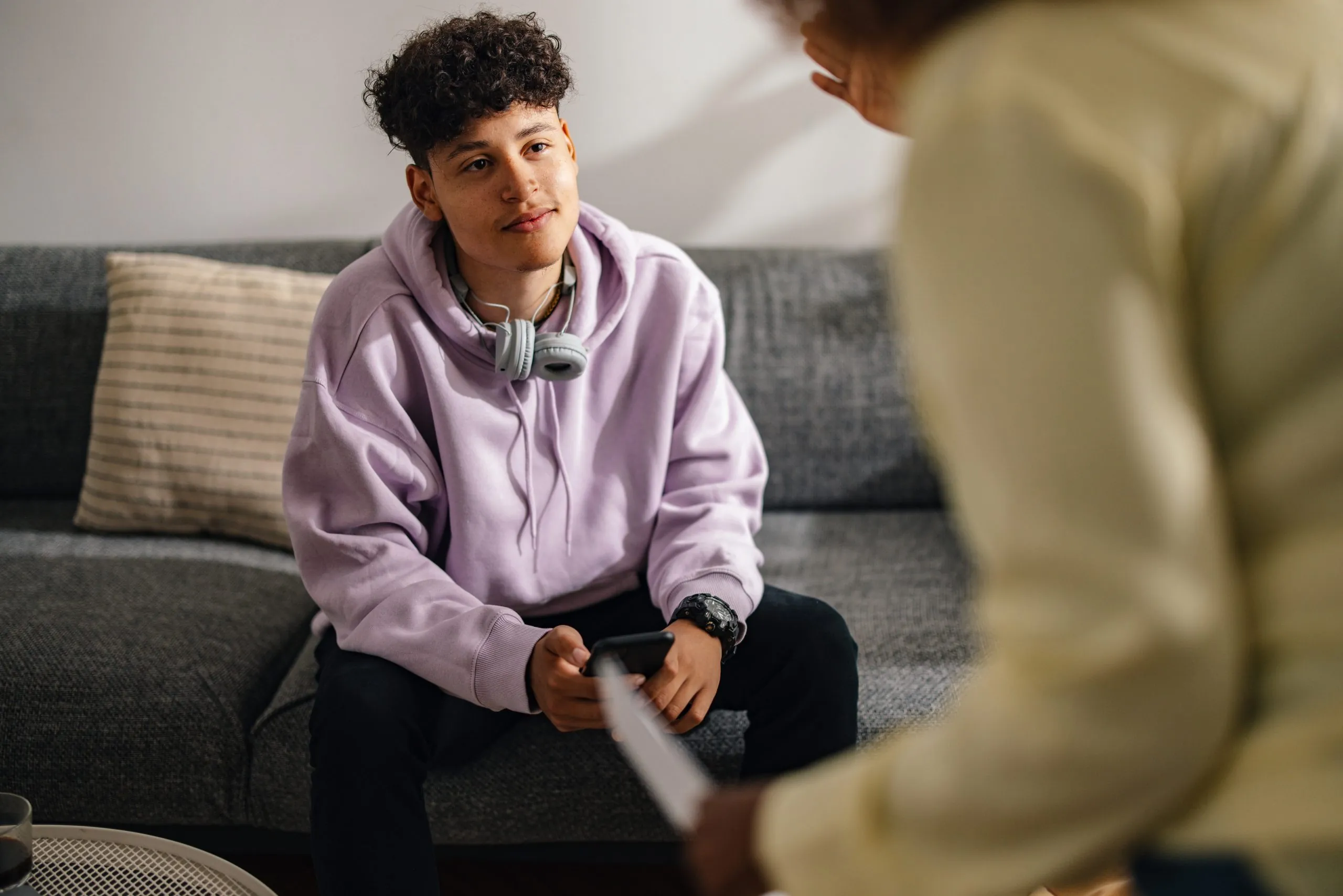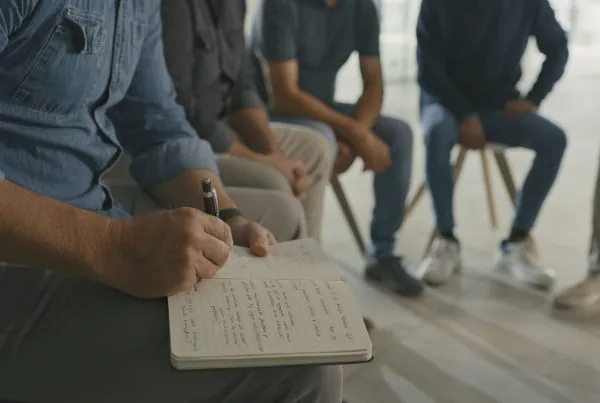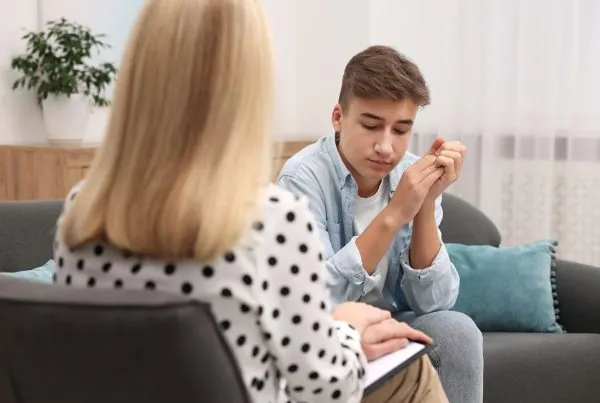Visions Treatment Centers provides specialized OCD teenager treatment combining evidence-based therapies, family support, and holistic care. This guide examines their approach, which includes CBT, ERP, dual diagnosis support, and life skills training. Programs at Visions Treatment Centers address co-occurring mental health or substance use issues while empowering teens with lasting coping strategies.
Parents of teens with OCD often face a maze of questions: Will treatment disrupt their education? How do we handle co-occurring anxiety or substance use? What if traditional therapy just hasn’t worked?
Visions Treatment Centers provides a tailored OCD teenager treatment program, incorporating tried-and-tested evidence-based therapies, group support, treatment for co-occurring conditions, and much more. Our programs at Visions don’t just manage symptoms – they rebuild confidence, independence, and hope.
The Visions Treatment Centers’ Approach to OCD Teenager Treatment
Evidence-Based Therapies as the Foundation
Visions Treatment Centers prioritizes therapies proven to reduce OCD symptoms and build resilience. Cognitive Behavioral Therapy (CBT) helps teens recognize and reframe irrational thoughts and behaviors. These can range from “I’m convinced the food in my pantry has been infested, and must be thrown out”, to “If I don’t check the stove 10 times, the house will burn down.”
Exposure and Response Prevention (ERP), the gold standard for OCD teenager treatment, gradually exposes teens to anxiety triggers (e.g., touching a “contaminated” surface) while preventing compulsive responses. Over time, the brain learns that fear diminishes without the need for rituals.
Personalized Care for Complex Needs
Many teens with OCD struggle with co-occurring depression, substance use, or trauma. Visions’ clinicians conduct thorough assessments to create individualized plans. For example, a teen using cannabis to numb obsessive thoughts might receive dual diagnosis treatment, combining ERP with substance use counseling.
This integrated approach ensures no underlying or contributing issue is overlooked.
A Day in OCD Teenager Treatment at Visions
Structured Therapy Sessions
Mornings often start with one-on-one CBT or ERP sessions. A therapist might guide a teen through a hierarchy of exposures, beginning with moderate triggers (e.g., writing a paragraph with a spelling mistake) and progressing to high-stress scenarios (e.g., public speaking in a group setting without mental rehearsals). Teens track their anxiety levels, visually seeing their progress.
Group Therapy and Peer Support
Group sessions help teens share challenges and victories. A teen struggling with harm-related obsessions might hear a peer describe overcoming similar fears, reducing isolation. Groups also teach social skills, like how to explain OCD to friends or navigate misunderstandings. In the long term, group sessions and peer support help teens experience universality and remind themselves that they’re not alone, as well as share ways to manage and cope with recurring or extraordinary stressors.
Academic Support and Routine
Education remains a priority. Visions partners with accredited educators to provide tutoring, ensuring teens stay on track with schoolwork. Structured study hours also serve as ERP practice – for example, a perfectionist teen learns to tolerate finishing an assignment without endless revisions.
Addressing Co-Occurring Disorders in OCD Teenager Treatment
Dual Diagnosis Care for Substance Use
Many teens with OCD self-medicate with drugs or alcohol to quiet intrusive thoughts. Visions’ dual diagnosis programs tackle both issues simultaneously. Therapists help teens identify triggers for substance use (such as “I drink to stop the ‘what if’ thoughts”) and replace harmful habits with ERP techniques or mindfulness.
Managing Anxiety and Depression
OCD often coexists with generalized anxiety or depressive disorders. Visions incorporates Dialectical Behavior Therapy (DBT) to teach individuals how to regulate their emotions. A teen paralyzed by fear of failure might learn distress tolerance skills, like paced breathing, to endure anxiety without resorting to compulsions or withdrawal.
Family Involvement in the Recovery Process
Family Therapy and Education
OCD teenager treatment at Visions includes weekly family therapy to repair strained dynamics. Parents learn to avoid enabling compulsions (e.g., giving excessive reassurance) and instead reinforce progress. For instance, praising a teen who resists washing hands after touching a pet, rather than criticizing setbacks.
Building a Supportive Home Environment
Visions provides families with tools to create an OCD-hostile home – a space where rituals are gently discouraged. This might involve agreeing not to answer repetitive questions or redesigning routines to minimize triggers. Parents leave treatment with clear strategies to support independence without fostering dependency.
Holistic and Experiential Therapies
Mindfulness and Stress Reduction
Yoga and meditation sessions teach teens to observe intrusive thoughts without judgment, cultivating a non-judgmental approach. A teen obsessed with symmetry might practice mindfulness while arranging mismatched objects, learning that discomfort fades naturally. These skills extend beyond treatment, helping them cope with future stressors.
Creative Expression and Recreation
Art and music therapy offer non-verbal outlets for processing emotions. A teen haunted by violent, intrusive thoughts might channel their anxiety into painting, externalizing fears in a safe context. Recreational activities, such as hiking or team sports, help rebuild physical confidence and distract from compulsive urges.
Aftercare and Long-Term Success
Relapse Prevention Planning
Before discharge, teens create a customized plan with their therapist. This includes:
-
A list of “red flags” signaling potential relapse (like avoiding social events)
-
Coping strategies for high-stress periods (like finals week)
-
Scheduled check-ins with Visions’ alumni support network
Ongoing Support for Families
Visions offers virtual family therapy sessions and workshops post-treatment. Parents gain ongoing guidance on navigating challenges like college transitions or medication adjustments, ensuring continuity of care.
Why Choose Visions Treatment Centers for OCD Teenager Treatment?
Accredited, Specialized Care
Visions’ licensed clinicians have advanced training in adolescent OCD and co-occurring disorders. Their facilities are accredited by the Joint Commission, meeting rigorous standards for safety and efficacy.
Conclusion
OCD teenager treatment at Visions Treatment Centers isn’t a temporary fix – it’s a transformative experience that equips teens with tools to reclaim their lives.
By blending evidence-based therapies, family support, and holistic care, Visions helps adolescents face OCD with courage, resilience, and hope. Get in touch with us to learn more about our comprehensive OCD treatment plans for teens and each of our OCD treatment modalities.









